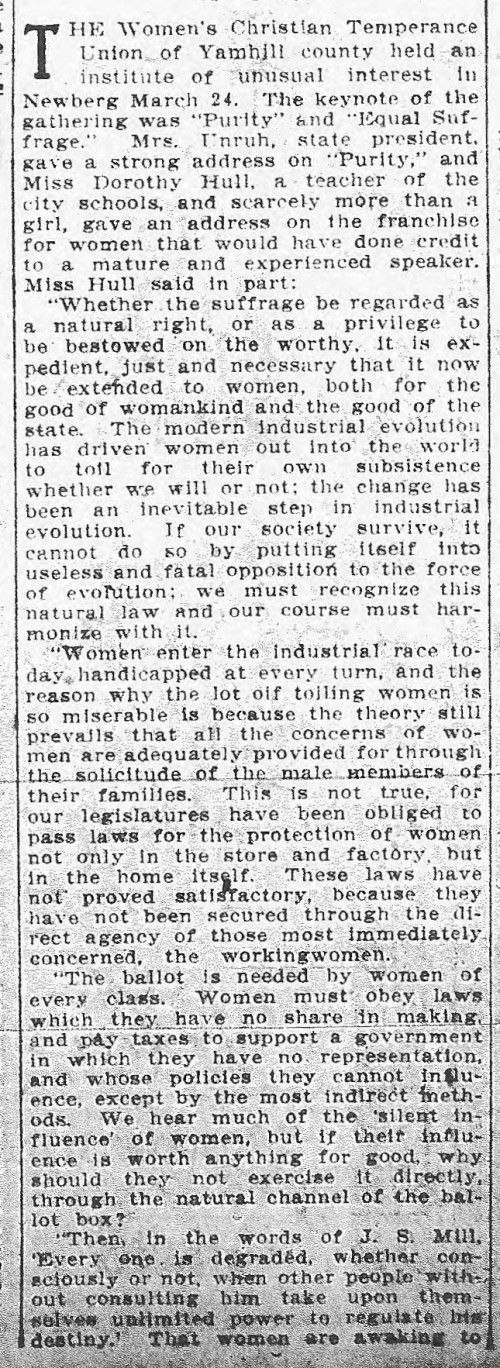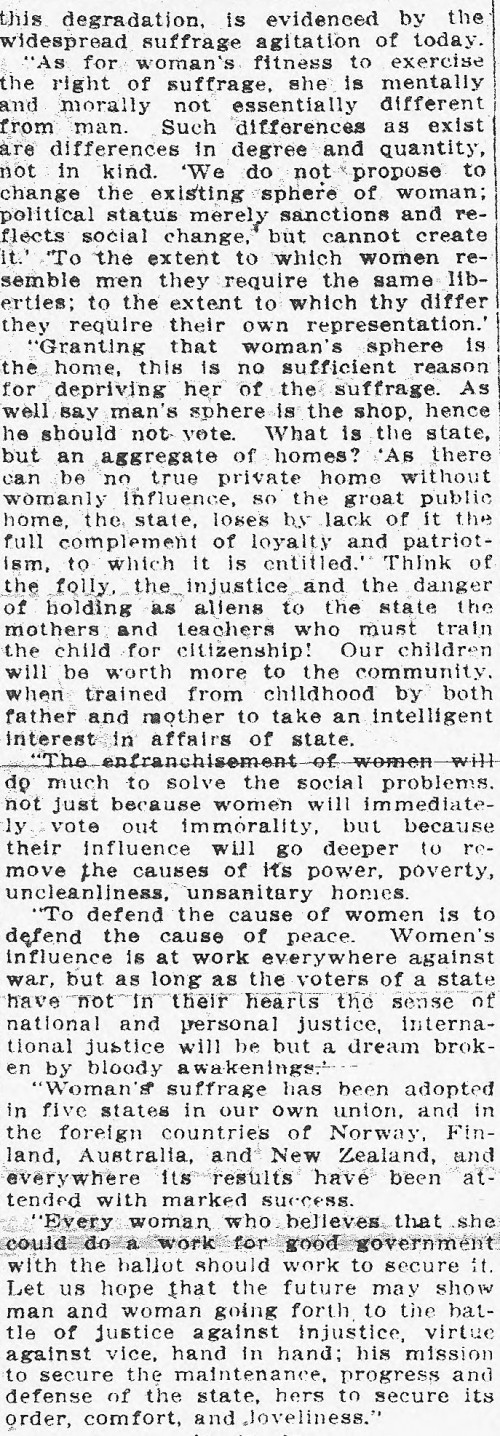April 1911: Sarah Evans Reports on Yamhill Teacher Dorothy Hull’s Address on Woman Suffrage
In April 1911 Sarah Evans reported on a recent meeting of the Woman’s Christian Temperance Union of Yamhill County held in Newberg, Oregon. Evans’s Sunday “Women’s Clubs” column in the Oregon Journal connected activists with one another. And her column preserves important suffrage history for us today.
Members of the Woman’s Christian Temperance Union were strong supporters of votes for women in Oregon and the nation. They saw the ballot as a tool to achieve temperance or the prohibition of alcohol through legislative means.
One of the speakers at the Yamhill County W.C.T.U. meeting was Newberg teacher Dorothy Hull. In her address on the franchise for women Hull insisted that present laws regulating industy “have not been satisfactory, because they have not been secured through the direct agency of those most immediately concerned, the workingwomen.” For Hull, women workers needed the vote to make laws that regulated industry.
Hull believed that the ballot was “needed by women of every class. Women must obey laws which they have no share in making and pay taxes to support a government in which they have no representation and whose policies they cannot influence, except by the most indirect methods. We hear much of the ‘silent influence’ of women, but if their influence is worth anything for good, why should they not exercise it directly through the natural channel of the ballot box.?”
She also expressed the view that women’s “sphere” was actually the world. “What is the state but an aggregate of homes?” she asked. And women should be considered full citizens. “Think of the folly of holding as aliens to the state the mothers and teachers who must train the child for citizenship! Our children will be worth more to the community when trained from childhood by both father and mother to taken an intelligent interest in the affairs of state.”
Like many activists of her day, Hull believed that women would bring a particular perspective to civic affairs. They would help to end “immorality” by removing the “causes of its power, poverty, uncleanliness, unsanitary homes” and would promote peace.
“Every woman who believes that she could do a work for good government with the ballot should work to secure it,” Hull concluded. “Let us hope that the future may show man and woman going forth to the battle of justice against injustice, virtue against vice, hand in hand; his mission to secure the maintenance, progress, and defense of the state, hers to secure its order, comfort and loveliness.”
Evans reported that Hull was a “teacher of the city [Newberg] schools, and scarcely more than a girl” but she “gave an address on the franchise for women that would have done credit to a mature and experienced speaker.”
Hull was evidently an historian. She later published “The Movement in Oregon for the Establishment of a Pacific Coast Republic” in the Oregon Historical Quarterly 17 no. 3 (September 1916).


Sarah A. Evans, “Women’s Clubs,” Oregon Journal, April 9, 1911, 5:7.
—Kimberly Jensen
Want to read more articles from Oregon suffrage campaigns? Click here
Permalink

